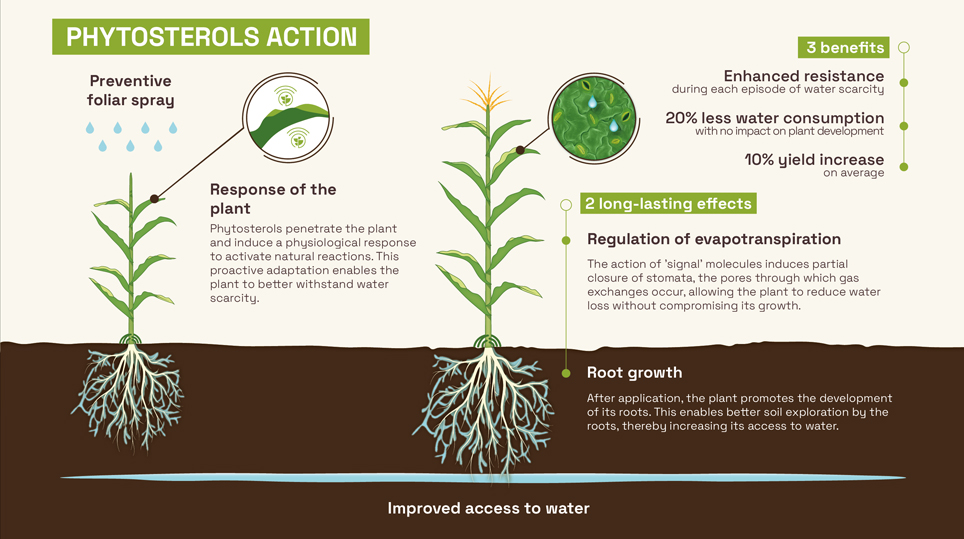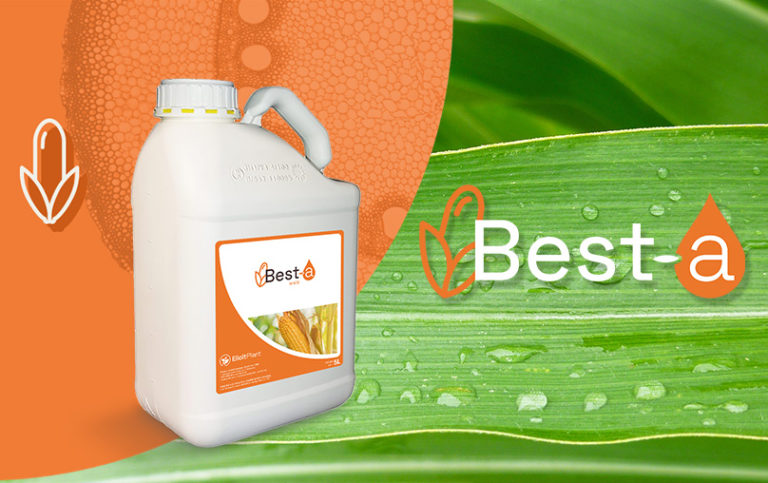Drought is defined as “a critical situation that arises when available water resources fall short of demand.” For crops, drought occurs when the amount of water in the soil is insufficient to meet their needs. Whether short and frequent or prolonged, it has significant consequences on both yield and quality.
Faced with the risk of drought, Elicit Plant’s phytosterols offer a natural, simple, and sustainable solution. When applied preventively, the phytosterol-based solution prepares plants to overcome dry spells that — even when brief — can significantly impact agricultural yields. Elicit Plant’s solutions are currently approved for four crops: corn, wheat, barley, and sunflower. Regardless of the crop, the mode of action is the same: the naturally derived molecule acts as a signal under stress conditions, triggering an appropriate response.
A unique mode of action to strengthen drought resistance
Elicit Plant has been studying the mode of action of phytosterols for several years, and it remains unparalleled. These natural molecules, present in all plants, play an essential role in maintaining the stability and flexibility of cell membranes. When applied to healthy plants before water deficits occur, they trigger several responses that help the plant optimize water use, thereby preserving available resources and minimizing periods of drought-induced stress. By preemptively managing a simulated stress, plants are better prepared to face future water shortages.
More specifically, phytosterols increase the production of salicylic acid, which equips the plant to resist environmental stress. At the same time, they induce a partial closure of the plant’s stomata to limit water loss, reducing water consumption by an average of 20%. Finally, they stimulate root growth, enabling the plant to access deeper water reserves and better utilize soil resources. Thanks to this technology, plants optimize water use at every stage of their development, preserve soil water resources, resist drought episodes more effectively, and recover more quickly after stress.





